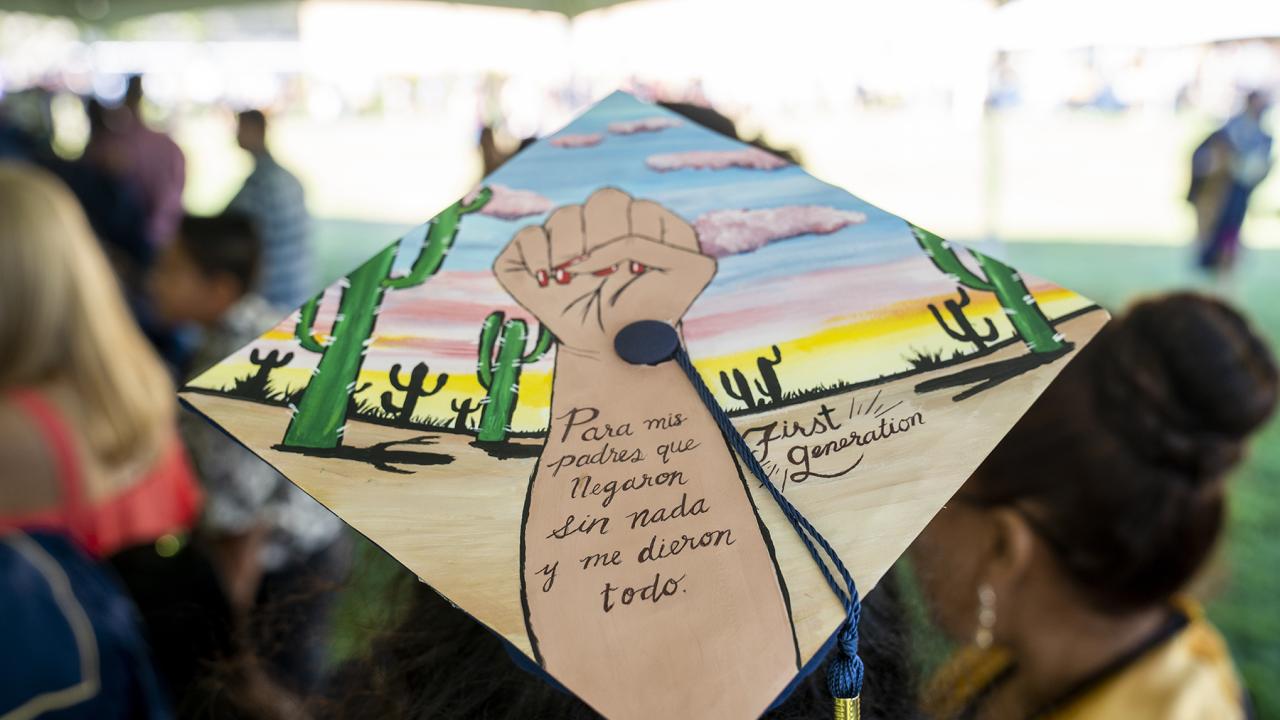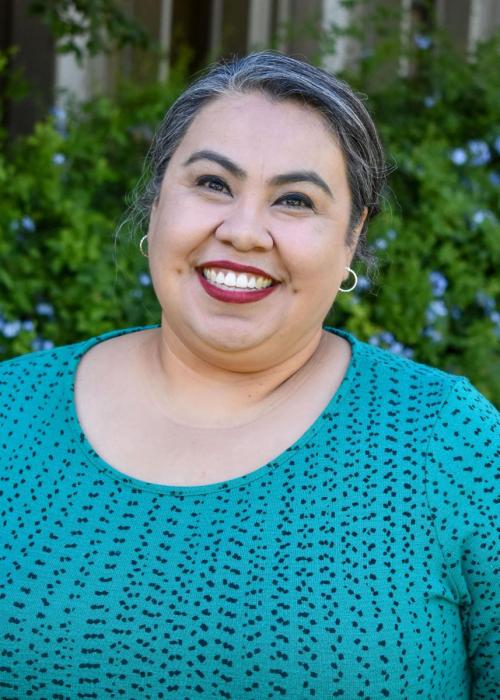
Event Date
"Interrogating the Intersection of Organizational Identities within Hispanic-Serving Research Institutions (HSRIs)"

Over the past 25 years, the number of Hispanic-Serving Institutions (HSIs) has grown exponentially in the United States. In fall 2020-21, there were 559 HSIs compared to 311 ten years earlier. While HSIs are commonly identified by at least a 25% Latinx/a/o undergraduate and 50% low-income student enrollment threshold, these institutions vary across institutional characteristics, including degree offerings, location, and institutional resources. Historically, most HSIs have been open and broad access institutions, but a growing number are also research 1 institutions (HSRIs). More culturally responsive and asset-based approaches to serving Latinx/a/o communities are necessary as these selective institutions that were predominantly white educate more racially diverse populations. Dr. Cuellar will discuss emergent themes on organizational identities and individual level analyzes based on a growing body of scholarship exploring HSRIs and the experiences of Latinx/a/o students, faculty, and staff within these institutions. In doing so, this talk explores tensions and possibilities in the transformation of HSRIs to be more humanizing and intentionally enact servingness.
Dr. Marcela G. Cuellar is an associate professor in the School of Education at the University of California, Davis. Her research examines Latinx/a/o student experiences and outcomes at Hispanic-Serving Institutions (HSIs) and emerging HSIs, campus climate, and community college baccalaureates. She is currently co-leading a research project examining the unique role of R1 HSIs, especially within the University of California. Her scholarship has been published in the American Journal of Education, Community College Review, Journal of Higher Education, and Review of Higher Education.
She holds a BA in Psychology and Spanish from Stanford University, a MA in Higher Education Leadership from the University of San Diego, and a PhD in Education (Higher Education and Organizational Change) from the University of California, Los Angeles. Originally from Oxnard, California, she is the proud daughter of Mexican immigrants.
Marcela Cuellar joined the School of Education in July 2014. She received her doctorate in Higher Education and Organizational Change at the UCLA Graduate School of Education & Information Studies. Her research examines access and equity in higher education, Hispanic Serving Institutions (HSIs) and emerging HSIs, and Latinx student success. More specifically, Dr. Cuellar employs quantitative and qualitative methods to explore Latinx students’ experiences at HSIs and emerging HSIs and how they are empowered as a result of their educational experiences during college and beyond.
For Professor Marcela Cuellar, examining the transformative power of education has been a lifelong passion. “My parents moved to Oxnard, a coastal California town, in the late 1970s to work in the strawberry fields,” said Cuellar. “As the youngest of six children, in addition to Spanish, I learned English from my siblings and had a different trajectory because of it. I was placed into GATE early on, which led me to an advanced track in middle school and high school, and thanks to my experiences as an Upward Bound student, I was the first of my siblings to go straight into a four-year university.”
Cuellar was accepted to multiple schools, eventually choosing Stanford University. “Stanford was a different world than Oxnard,” she said. “I got to see a new world unlike my own and interact with a diverse group of students. It also brought to light how inequitable our backgrounds could be. I could see stark distinctions between where students were coming from and that very few students at Stanford looked like me. When I graduated from college, I knew that I wanted to help other students, especially students from my own community, have access to an education in the way that I had.”
After completing her bachelor’s degree, Cuellar jumped into working with historically marginalized students at a small Bay Area private school and then became an Upward Bound counselor at San Diego State University. “As I worked with more and more students after college, I started to deeply think about how education systems as a whole were helping students,” she said. “How do high school students transition to four-year universities, and how do universities support their retention? We’re preparing so many students to go to college, but are our colleges ready for them? I had all of these questions, and that led me to graduate school.” She went on to her PhD in Education with a specialization in higher education and organizational change from UCLA.
Her current research examines student experiences and outcomes at Hispanic Serving Institutions, which are institutions where at least 25 percent of undergraduates identify as Latinx. UC Davis recently met the criteria to apply to become a federally designated HSI, and Cuellar served on the campus task force. HSIs can provide real benefits to Latinx students, she said. “I’m particularly interested in the holistic outcomes at HSIs, like levels of civic engagement, student self-perception and pathways to graduate school—the benefits of a college education beyond the grades. For me, higher education was a transformative experience, and it really changed my view of the world and what was possible for my future. I value the potential of higher education, and it is so compelling to hear from students that that is also what they’re seeking—an opportunity to expand their own perspectives and think about their ability to change the world. Grades matter and degrees matter, but there’s so much more to an education. I hope my research makes sure that we don’t lose sight of that.”
Please contact Nina Bell at nbell@ucdavis.edu with any questions.
